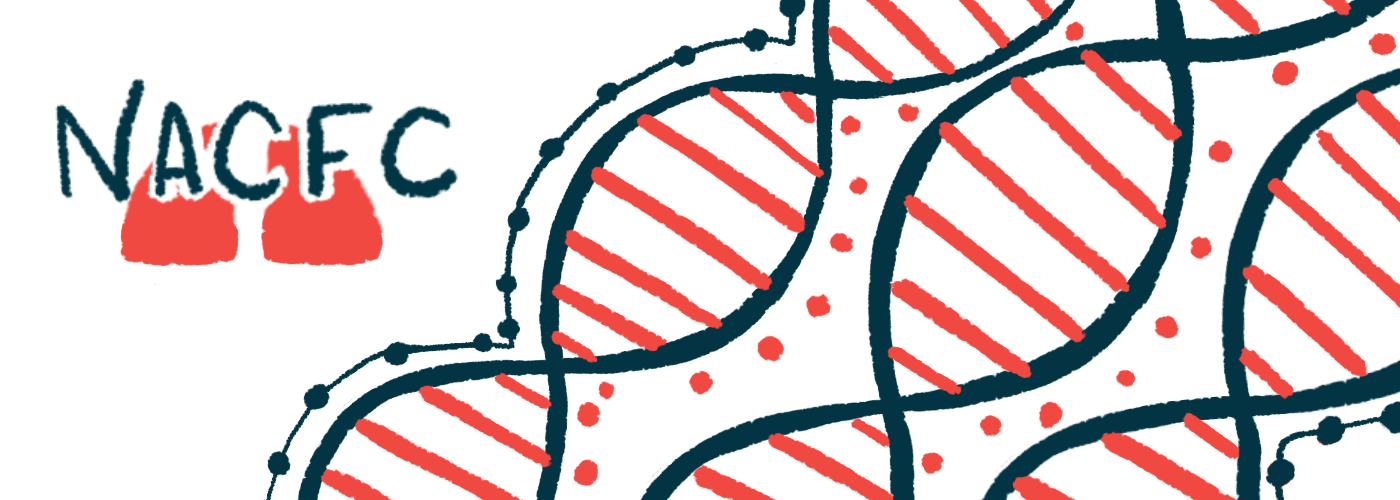#NACFC2022 – 4D-710 Safe, Restores CFTR Lung Production in 3 Patients
Therapy uses an adeno-associated viral vector to deliver artificial CFTR gene
Written by |

A single dose of 4D-710, an aerosol gene therapy candidate developed by 4D Molecular Therapeutics (4DMT) for adults with cystic fibrosis (CF), was reported to be safe and restored CFTR protein production in lung tissue samples from three patients enrolled in a Phase 1/2 clinical trial.
Interim trial findings were presented at the 2022 North American Cystic Fibrosis Conference (NACFC) by Jennifer Taylor-Cousar, MD, co-director of the Adult Cystic Fibrosis Program at National Jewish Hospital. The Phase 1/2 study (NCT05248230) is assessing the safety, tolerability, and preliminary effectiveness of 4D-710. It expects to enroll about 21 patients who are either ineligible for CFTR modulator therapy or have stopped because of side effects.
The study is actively enrolling at sites in the U.S. According to 4DMT, additional data from this trial are expected in 2023.
4D-710, which was engineered with 4DMT’s proprietary Therapeutic Vector Evolution platform, uses a harmless adeno-associated viral vector, called A101, to deliver a CFTR transgene — an artificial version of CFTR, the gene whose mutations cause CF. This transgene carries instructions for a healthy CFTR protein.
“These landmark CFTR expression data were achieved in the CF population with the highest unmet medical need, those who are not eligible for CFTR modulators,” David Kirn, MD, co-founder and CEO of 4DMT, said in a press release. “These interim results underscore the encouraging potential of 4D-710 for patients with cystic fibrosis lung disease, and the potential of our proprietary A101 vector for other lung diseases. Finally, these results further validate our Therapeutic Vector Evolution platform.”
The potential therapy is given as an aerosol to target epithelial cells that line the airways and enhance CFTR protein production. The A101 vector was also created to infiltrate the mucus barrier that characterizes CF and avert immune reactions.
Gene therapy’s data on three patients
The trial is testing two different doses in adults. Data collected from three patients receiving the first dose (1×1015 vector genome) showed it was well tolerated and no treatment-related side effects were observed. One patient reported mild dry throat and fatigue during the delivery.
Researchers also evaluated the delivery and presence of the 4D-710 CFTR transgene in biopsies and brushings in six locations. A brushing is a procedure wherein cells are taken from inside the airways leading to the lungs.
Four weeks after treatment, the CFTR transgene was detected in all three patients’ lungs. It was found in all biopsies from the three patients. Its RNA, the intermediate molecule that originates from DNA and guides protein production, was also detected in all biopsies and brushings.
Also, all three major cell types in the airways showed production of the transgene, including ciliated columnar cells, goblet cells, and basal cells. About 40% of bronchial epithelial cells were estimated as positive for CFTR RNA.
The second dose group, which will include three to six patients, is underway. The participants’ lung function tests and quality of life are being evaluated over 12 months after dosing.
“I’m very encouraged by the robust and widespread transgene expression demonstrated in all three participants’ lungs at this first dose level,” Taylor-Cousar, the study’s lead principal investigator, said.
“The clinical data are the first to date to demonstrate, in the lungs of people with cystic fibrosis, successful delivery and expression of the CFTR transgene after aerosol delivery of a gene therapy. Notably, expression was seen in 100% of lung tissue samples analyzed,” Taylor-Cousar said. “Delivery and expression of CFTR represents a critical and successful first step toward achieving our goal of benefiting people with CF who are not eligible for modulator therapy. We look forward to continuing to enroll the study at the next dose level, as well as to additional follow-up with these study participants to assess clinical activity.”
Note: The Cystic Fibrosis News Today team is providing in-depth coverage of the 2022 North American Cystic Fibrosis Conference (NACFC) Nov. 3–5. Go here to see the latest stories from the conference.







